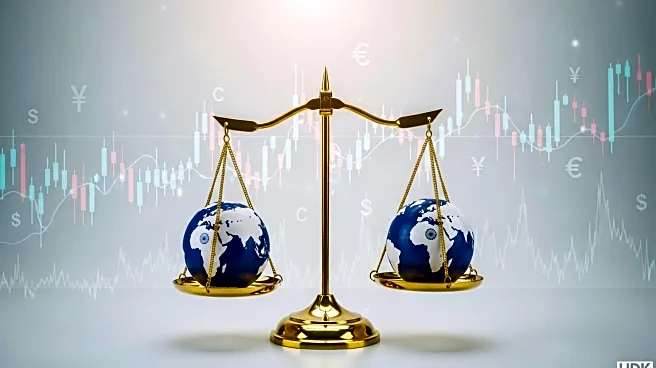What's Happening?
Indian benchmark indices experienced a downturn as investors engaged in profit booking following a recent rally. Technology stocks were notably affected, dropping nearly 2% due to the U.S. announcement of a $100,000 fee for new H-1B visa applications, impacting India's IT outsourcing industry. Despite this, domestic indicators such as a healthy monsoon and steady credit growth provided some economic stability. Meanwhile, Commerce and Industry Minister Piyush Goyal is leading a delegation to Washington to advance discussions on a Bilateral Trade Agreement (BTA) with the U.S. Talks have been ongoing since February, with recent meetings resetting the tone for potential agreement before winter.
Why It's Important?
The imposition of a new H-1B visa fee by the U.S. poses a significant challenge to India's IT sector, which heavily relies on skilled visas for U.S. market access. The ongoing trade discussions between India and the U.S. are crucial for reducing reciprocal duties and enhancing export-driven sectors. A successful trade agreement could bolster economic ties and improve market sentiment, particularly in sectors affected by the visa fee. The outcome of these talks could have substantial implications for both countries' economies, influencing trade policies and economic growth.
What's Next?
The next steps involve continued negotiations between India and the U.S., with optimism for a trade agreement before winter. External Affairs Minister S. Jaishankar's meeting with U.S. Secretary of State Marco Rubio at the United Nations General Assembly may address the H-1B visa fee issue. The progress of these discussions will be closely monitored by stakeholders in both countries, with potential impacts on trade policies and economic relations.











